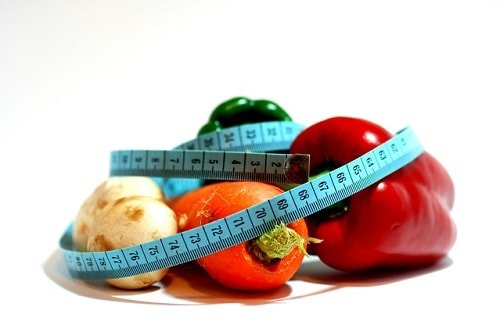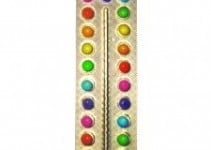
A woman’s menstrual cycle can be influenced by a variety of internal and external factors. Often, periods change as do the entire menstruation cycle, and while these changes may not seem too important, they are often special indicators of your overall health.
The key to maintaining a healthy menstrual cycle is to pay particular attention to the foods you eat and how they may affect your period.
Changes you can make
To improve your health and ensure proper functioning of your menstrual cycle, the best dietary change you can make is to avoid eating excessive carbs. Higher sugar intakes will lead to more severe symptoms of your period, which can be sufficiently unpleasant.
Cutting out sugar completely and avoiding chocolate and foods with hidden sugars can be the key to improving your menstrual symptoms.
Also, you can maintain balanced blood sugar levels by eating a healthy meal or snack every couple of hours. This will prevent your blood sugar levels from dropping too much and your adrenal glands from releasing adrenaline.
Additionally, eating a diet low in fat can have a negative impact on your menstrual cycle. Insufficiency of omega-3 fats has been linked to anxiety, bloating, depression, nervousness, headaches [1].
A diet considerably low in fat can also play a role in developing secondary amenorrhea, which characterizes a complete absence of menstrual bleeding altogether and can be unhealthy for your cycle.
Eating too much or too little can affect your hormones and menstrual cycle, so eating balanced, healthy, and nutrient-rich foods is crucial in maintaining a healthy period.
Eating too little, during extreme weight-loss diets or eating disorders such as anorexia, can cause your period to stop. [2]
Being deficient in certain vitamins and minerals can also affect the balance of your menstrual cycle and potentially worsen PMS symptoms.
Vitamin E can reduce the pain and blood loss associated with your period. So having a diet deficient in vitamin E can have potential negative effects on menstruation, causing heavier periods with more cramps. [3]
Also, vitamin D deficiency can cause more severe cramping, headaches, acne, and pain as a result. [4]
Diets rich in healthy fats, such as fish, nuts, seeds, oils, and avocado, are great for ensuring a healthy and balanced menstrual cycle.
Focusing on whole foods and avoiding consumption of processed foods and caffeinated beverages can help improve the symptoms of your menstrual period overall.
Additionally, taking dietary supplements to help combat vitamin deficiencies can improve symptoms as well.
Foods you should eat
There are many different foods you can eat to treat symptoms of your menstrual period. Unrefined starchy carbohydrates can help keep your blood sugar levels steady, increase your energy, and boost levels of serotonin to prevent food cravings and uplift your mood.
Avoiding caffeine can help combat breast tenderness before menstruation by reducing your exposure to methylxanthines, the substance in caffeine that is linked to increased painful and tender breasts. [5]
You can also limit your intake of salt and fatty foods to combat bloating, and increase your intake of pure, filtered water to prevent uncomfortable water retention.
While it is tempting to automatically reach for the junk food once our periods show up, this craving is a signal that you should be getting certain nutrients that your body needs.
Maintaining a balanced diet is important for providing stability in your body. Here are some foods and beverages that can affect your menstrual cycle:
Alcohol
The first thing you may want to do when you get your period is indulge in a glass of wine. However, wine can cause uncomfortable PMS symptoms as alcohol has been shown to increase levels of cortisol, which increases blood pressure and fat levels. [6]
Bananas
Bananas are a healthy alternative during your menstrual cycle, as these magnesium-rich fruits can help decrease water retention and regular mood by increasing serotonin levels.
Broccoli
Broccoli, along with other high-fiber vegetables, can help decrease bloating during your menstrual cycle.
Eggs
High intakes of calcium and vitamin D-rich foods, such as eggs and low-fat dairy, can help reduce the unpleasant symptoms of PMS.
Flaxseed
Flaxseeds contain a phytoestrogen called lignans, which have both an estrogenic and antiestrogenic effect that can help reduce hot flashes.
Quinoa
Quinoa is high in iron and vitamin B12, which can help mediate mood swings and elevate energy levels when your menstrual cycle leaves you feeling low.
Whole Grains
Including whole grains into your diet can help maintain a healthy weight, which in turn leads to a healthy menstruation cycle.
References
-
1. https://www.psychologytoday.com/us/articles/200304/the-risks-low-fat-diets
2. https://www.livestrong.com/article/401465-does-dieting-affect-your-period/
3. https://www.nutraingredients.com/Article/2005/04/12/Vitamin-E-found-to-reduce-period-pain
4. https://www.vitamindcouncil.org/new-study-finds-low-vitamin-d-status-linked-to-irregular-menstrual-cycles/
5. https://www.ncbi.nlm.nih.gov/pubmed/2927749
6. https://www.livescience.com/62391-alcohol-pms.html
Image: Pixabay



